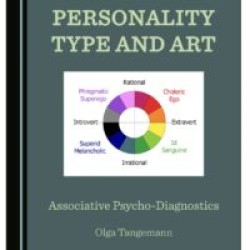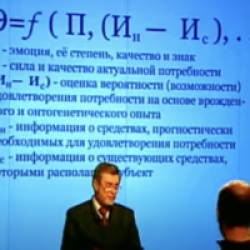Alexander Peshkov (later known as Maxim Gorky was born in Nizhny Novgorod on 16th March, 1868. His father was a shipping agent but he died when Gorky was only five years old. His mother remarried and Gorky was brought up by his grandmother. Gorky left home in 1879 and went to live in a small village in Kazan and worked as a baker. At this time radical groups such as the Land and Liberty group sent people into rural areas to educate the peasants. Gorky attended these meetings and it was during this period that Gorky read the works of Nikolai Chernyshevsky, Peter Lavrov , Alexander Herzen, Karl Marx and George Plekhanov. Gorky became a Marxist but he was later to say that was largely because of the teachings of the village baker, Vasilii Semenov. Read more.
I.Weisband, Working Materials, 1986. Translated by Dmitri Lytov, edited by Lev Kamensky, 2002
1. A consistent adept. He is able to rationally and adequately choose the best of the available systems or dogmas and to fight for its implementation uncompromisingly up to the point of impertinence. He categorically rejects everything that cannot fit into this system, and perfects it to its ideal state. He is very consistent in the realization of his system, even when it comprises inconstancy. In this way Talleyrand succeeded in occupying the highest positions under Bourbons, the Convent, the Directory, Napoleon, and once again under Bourbons, and finally died prosperous and rich, which he has always strived for.
2. A sober realist. He never falls into despair or gives in to illusions; always he is equally stable, calm, and logical. He does not tend to fantasies and dislikes other people’s passion for hollow projects.
3. Researcher. He tends to profound analysis of narrow problems, establishes fastidiously their correlation to what he has previously learnt. He knows how to listen, sometimes he can listen simultaneously to two interlocutors. His norm of loneliness is high. He does not read much, prefers more to reflect—this is his favorite condition. He always elaborates the accumulated body of knowledge for practical implementation. To those who do not understand the problem in so many details as he does, his actions may appear paradoxical and unpredictable. Often he finds a solution where others are “too shy” to find it.
4. A mix of delicacy and adventurism. He is very reclusive and secretive. He does not like to be the center of attention. In communication, especially at a distance, he is sympathetic and not bothersome. At the same time, he needs listeners. He captivates people by his purposefulness in implementation of his own system. If he understands something and other people do not, he may fall into aggression. He is also stubborn and uncompromising, as a manager he tends to put the screws on. He is tactful, sympathetic to people; however, he treats them rather like instruments. Personal feelings, sympathies and antipathies do not distract him; the most important thing is the result. Ethic is submitted to logic (Stalin). He does not tolerate, when other people move his belongings—for him this is a grave insult. For him it is hard to tolerate aggressive people, although he does not strive to argue with them.
5. Stoic. He is hardy and just, does not spend time for redundant conveniences. He prefers to hide his real feelings: hunger, fatigue, pain, and fear—”an ill child will not groan, in order not to injure his mother”.
6. Close circle of friends. He does not hide his attraction to other people, sometimes it may even seem that he intends to show it. He does not leave unnoticed any person of the opposite sex. However, he can judge about other people’s feelings only by their external manifestations: e.g. how people look at him, speak with him. This is why he can easily mistake his desire to be loved for his partner’s real feeling. He is aware of that, and therefore is distrustful and suspicious.










Recent comments